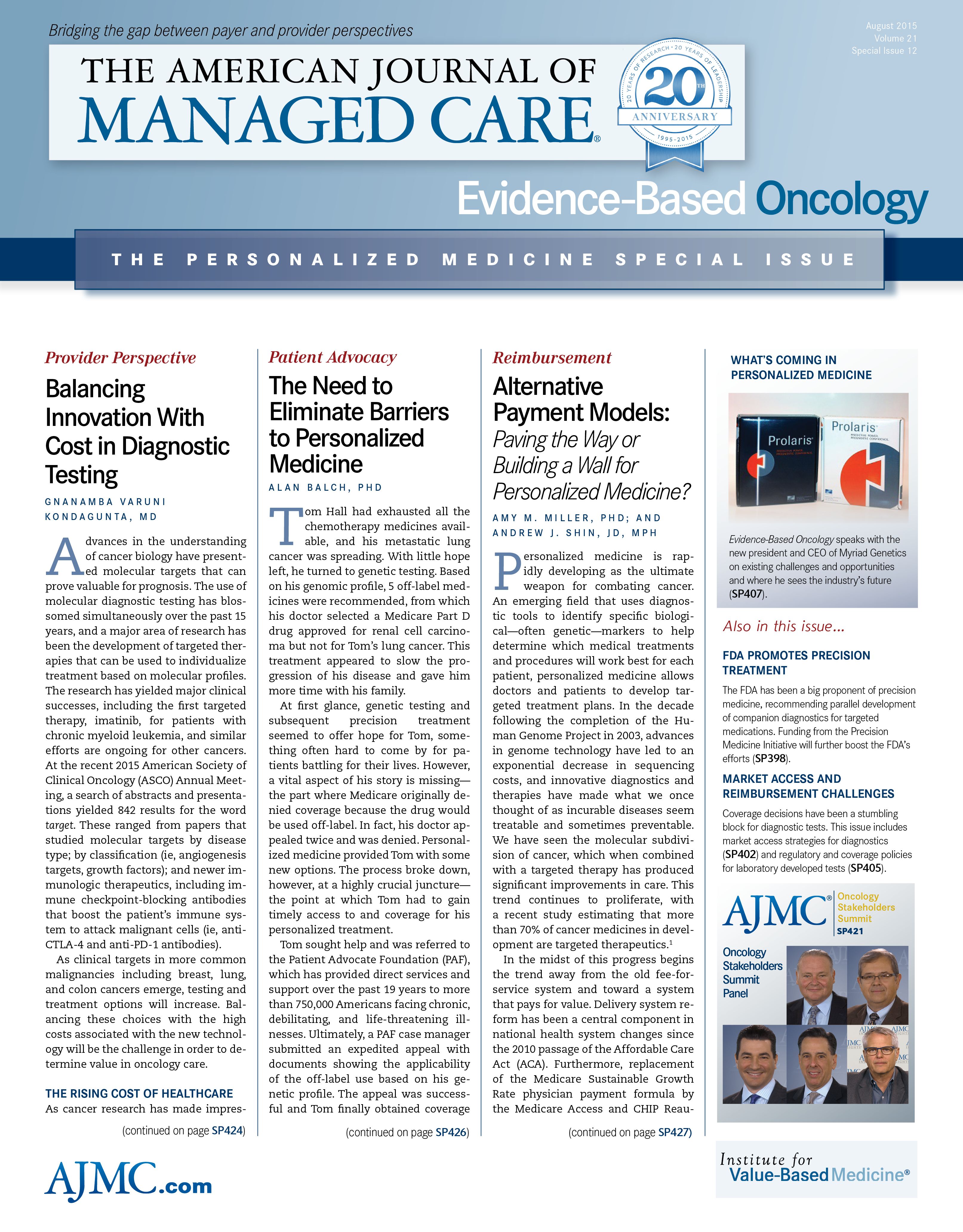- Center on Health Equity & Access
- Clinical
- Health Care Cost
- Health Care Delivery
- Insurance
- Policy
- Technology
- Value-Based Care
Gefitinib Approved as Frontline in EGFR-Positive NSCLC
Lung cancer leads the charts in cancer-related mortality among both men and women in the United States. According to the American Lung Association, lung cancer causes more deaths than colorectal, breast, and prostate cancers combined; an estimated 158,040 people will die from lung cancer in the United States this year—27% of all cancer-related deaths. Non-small cell lung cancer (NSCLC) is the most common subtype of the disease, with EGFR mutations observed in 10% of NSCLC tumors.
Now, the FDA has approved gefitinib (Iressa) as first-line treatment for patients with metastatic NSCLC with exon 19 deletions or exon 21 L858R substitution in epidermal growth factor receptor (EGFR), with therascreen EGFR RGQ PCR kit as a companion diagnostic to appropriately identify patients who harbor the said mutation(s) and would be candidates to receive Iressa as first-line treatment. The approval follows a multicenter, single-arm, safety and efficacy study of Iressa in 106 treatment-naïve patients with EGFR-mutated NSCLC. The primary end point of the trial was ORR or the percentage of patients who presented with complete and partial shrinkage of tumor following treatment. The results showed that 50% of trial participants had tumor shrinkage that lasted an average of 6 months.
Another trial, a retrospective analysis conducted in a subgroup of 186 patients with EGFR mutation-positive metastatic NSCLC, had a comparator arm of 6 cycles of carboplatin/paclitaxel. The trial supported evidence from the prospective trial described above in that Iressa-treated patients had improved progression-free survival compared with the comparator arm.
Diarrhea and skin reactions were the most common side effects of treatment with Iressa.
Iressa, developed by AstraZeneca Pharmaceutical, was originally approved in 2003 for the treatment of patients with advanced NSCLC after progression on platinum doublet chemotherapy and docetaxel. Iressa was voluntarily withdrawn from the market after subsequent confirmatory trials failed to verify clinical benefit. The current approval is for a different patient population than the 2003 approval.
Reference
FDA approves targeted therapy for first-line treatment of patients with a type of metastatic lung cancer [press release]. http://www.fda.gov/NewsEvents/Newsroom/PressAnnouncements/ucm454678.htm. Silver Spring, MD: FDA; July 13, 2015.


